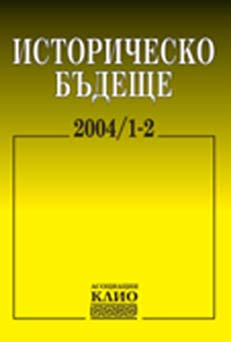Западната легитимация на късното българско “дисидентство”
Western Legitimization of Late Bulgarian “Dissidence”
Author(s): Natalia HristovaSubject(s): History
Published by: Асоциация Клио
Keywords: dissidence; Eastern Europe
Summary/Abstract: Like those in the USSR and the other Eastern European states, “dissidence” in Bulgaria began in the mid-1950s and continued until the end of the 1980s. It was a way which began with the individual cultural value opposition of intellectual, passed through the natural formation of groups of associates and through a variety of expressions and forms: statements at official forums, publication of critical works, rehabilitation of banned authors, public appeals, legal defence of repressed persons, signing of charters (a case in point being the Czech Charter ’77), to reach the point of organised moral resistance against the power of injustice and non-freedom. In other words, a “dissident” organisation was the final form of “dissidence”, not the only one it took. This article defines as “late” (in comparison with the USSR, Hungary, Czechoslovakia and Poland) the organised resistance that appeared in Bulgaria in 1988-1989. It was precisely in those years that witnessed a clearly acknowledged and activated work of members of informal organisations for contacts with the West, particularly of the only “purely dissident” formation – the Club in Support of Glasnost and Perestroika. This was done mainly through the Bulgarian sections of the BBC, Radio Free Europe, Deutsche Welle and the Voice of America, which were used to popularise the actions of the “dissidents” among Bulgarians, mainly in the French Liberation and Le Monde. This was the main reason for the widespread opinion in the West that there was no serious resistance against the communist authorities and ideology in Bulgaria.
Journal: Историческо бъдеще
- Issue Year: 2004
- Issue No: 1-2
- Page Range: 116-130
- Page Count: 15
- Language: Bulgarian
- Content File-PDF

